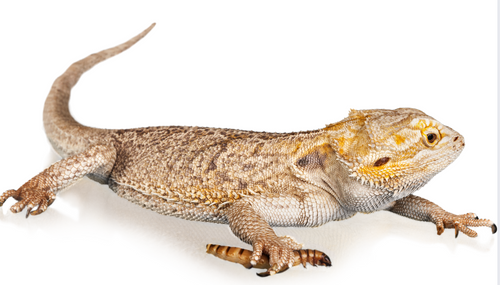Check your reptiles health after Brumation
Posted by BioSupplies on 28th Aug 2025
Checking Your Reptile’s Health After Brumation
As the weather warms up, many reptiles across Australia begin to wake from their winter brumation. This is an important time for reptile keepers, wildlife carers, and zoos, as animals need a careful health check and gentle support before returning to normal feeding and activity. At BioSupplies, we provide a wide range of live and supplementary foods to help your reptiles ease back into action.
1. Observe Their Behaviour
When reptiles wake from brumation, they should slowly become more active — basking, moving about their enclosure, and showing signs of curiosity. If your reptile remains very sluggish or unresponsive, it may be a red flag that further care or veterinary attention is needed.
2. Check Body Condition
Brumation often results in a small amount of weight loss, but your reptile should not appear weak or emaciated. Look for:
-
Weight and muscle tone — the body should still feel firm.
-
Hydration — pinch the skin gently; it should return quickly to normal.
A dehydrated reptile may benefit from a short soak in lukewarm water before feeding.
3. Inspect Eyes, Nose, and Mouth
Clear, bright eyes, a clean nose, and a healthy mouth are good signs. Mucus, swelling, or sores could indicate a respiratory or oral infection.
4. Skin and Scale Health
Check for stuck shed, parasites, or wounds. Many reptiles shed shortly after waking up, so providing proper humidity is essential.
5. Hydration First, Food Second
Before offering meals, ensure your reptile has had access to fresh, clean water. You can also give them a gentle soak to encourage hydration.
6. Ease Back Into Feeding
After a long rest, it’s best to reintroduce food slowly. Begin with smaller, easy-to-digest meals:
-
Live crickets – a natural, lively food that stimulates hunting.
-
Mealworms and superworms – excellent for providing energy and protein.
-
Black soldier fly larvae – highly nutritious and calcium-rich.
For reptiles that are slow to resume eating, try our convenient CrickiPuree insect and fruit gels, These purees are packed with premium-grade crickets, mealworms, and black soldier fly larvae, making them an ideal supplementary food when reptiles first wake and are adjusting back to live prey.
7. Watch for Warning Signs
Seek veterinary help if you notice:
-
Severe weight loss
-
Sunken eyes or persistent dehydration
-
Refusal to eat or drink after several days
-
Wheezing, clicking, or open-mouth breathing
-
Visible parasites or skin issues
Final Thoughts
Waking from brumation is a critical time to give your reptile the best care. By performing a simple health check, rehydrating first, and reintroducing nutritious foods gradually, you’ll set them up for a strong and healthy season ahead.
Explore the full range of BioSupplies live foods and supplements to make this transition smooth for your reptiles.

